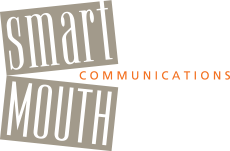Situation: High-powered physicians. Clear focus on science. No time for non-medical training, no perceived need for coaching.
Engagement Objective: To work with hospital and medical school department heads to help shape their messaging so they are more compelling and relevant to their various audiences – including potential donors, recruits, and media.
Training Sessions: In small group sessions, we met in a conference room to review department messages and how to use them. Participants were given time to digest the messaging and latitude to put messages in their own words. Interestingly, certain key words were consistent from participant to participant. We watched news clips of other physician-spokespeople and learned from those that the use of too much information and/or jargon doesn’t make a point and can alienate audiences. The sessions culminated in participants going on camera, in a television studio, to make brief presentations and field Q&A, using their new insights. We watched instant replays, and each participant had opportunities for do-overs.
Result: The doctors were pleasantly surprised at how much they learned in a short period of time. Some reported adopting a whole new strategy for how they were planning to conduct recruiting calls, others had interactions with the media and felt much more comfortable, with performances that reflected their preparation and confidence.
- New Agey Advice for Nervousness - November 3, 2022
- Your Passion Can Go a Long Way Toward Building Connection - October 10, 2022
- Keep stage fright a private matter while you’re speaking on a public stage! - August 11, 2022
